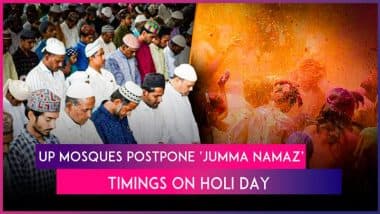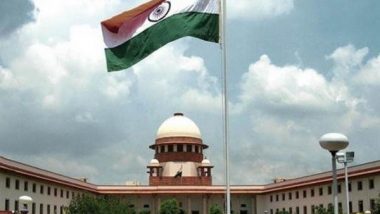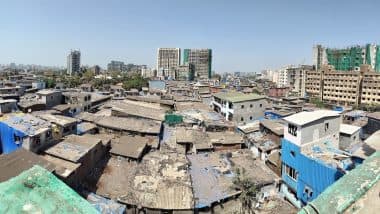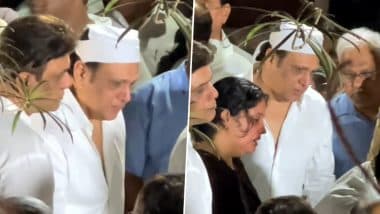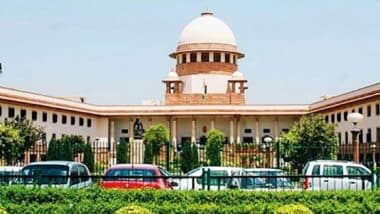New Delhi, February 4: The Supreme Court on Friday approved the tweaked protocol for disposal of dead bodies of the Parsi Zoroastrian COVID-19 victim after the government of India and the members of the Parsi community reached an amicable settlement of the dispute.
A bench of Justices DY Chandrachud and Surya Kant agreeing to the tweaked protocol for disposal of dead bodies of COVID-19 victims of Parsi Zoroastrian set aside the Gujarat High Court order, which had refused to grant any relief to the community. Yogi Adityanath Govt Announces Free Funerals for Deceased COVID-19 Patients.
At the outset, senior advocate Fali Nariman appearing for the petitioner told the bench that parties have settled it with the Solicitor General Tushar Mehta as to how the dead will be placed in a tower of silence.
Solicitor General told the bench that petitioners have agreed that over the tower of silence they will place an iron grid and net so that birds don't come feed on bodies and the bodies are primarily disposed off by strong rays of the sun. This is because bodies are to be disposed off by strong rays of the sun, he added.
In its order, the apex court noted that as a result of the intervention of the Solicitor General, an agreed protocol has been reached.
"Since dispute has been amicably settled and that proposal conforms to the faith and adheres to COVID-19 concerns. We appreciate the fair stand adopted by both sides. The protocol is accordingly accepted and order is passed in pursuance of the joint statement and thus the Gujarat High Court order is set aside," the top court said while passing the order.
The apex court had earlier asked the Central government to consider tweaking the protocols for the disposal of dead bodies of COVID-19 victims to accommodate funeral rites for Parsi Zoroastrians as per their rituals.
It had suggested that an informal virtual meeting of senior advocate Fali S Nariman, Central government officials, and Solicitor General Tushar Mehta can take place and suggestions can be put across and protocols can be tweaked.
An affidavit was also filed by the Central government telling the apex court that keeping the corpses exposed without burial or cremation will not be a permissible way of disposal of dead bodies of COVID-19 positive patients and maintained that appropriate handling of dead bodies of COVID-19 positive patients, therefore, remained critical from a public health perspective.
"The dead bodies of such infectious patients are likely to get exposed to environment and animals, if not buried or cremated properly. The OIE World Organization for Animal Health) has also observed that the people who are suspected or confirmed to be infected with the COVID-19 virus should minimize close direct contact with animals, including wildlife," the affidavit of Centre had stated.
The virus introduction to a new animal species from a dead body might accelerate its evolution, which could potentially impact on surveillance and control strategies, stated the affidavit.
The apex court had sought the assistance of Solicitor General Tushar Mehta to find an amicable solution in resolving the grievances of the Parsi community, which is unable to perform the traditional burial of its members who died of COVID-19.Nariman, appearing for the Surat Parsi Panchayat Board, had said the Parsi community is the only community in the country that has professional pallbearers.
The plea had said the existing guidelines do not allow for burial as is done in the Parsi community. The appeal was filed by the Surat Parsi Panchayat Board seeking a traditional burial for the members of the Parsi community who died of COVID-19. The appeal challenged a July 23 order of the Gujarat High Court which had dismissed the plea.
The appeal said that there is a community of corpse bearers among the Parsis and when someone dies, the family members do not touch the body and only the corpse bearers can do so. General guidelines have been issued for the cremation and burial of COVID-19 victims, but there is nothing about the Parsi community, it added.
The Surat Parsi Panchayat Board had sought to protect the fundamental right to perform the last rites of the community members, who died of COVID-19, in accordance with the tradition of Dokhamanshini and not cremation, as has been directed by the authorities in view of the pandemic.
In the Dokhamanshini tradition, the body is kept at a height on a structure referred to as a well or the tower of silence, to be eaten by vultures, and the remains are left to decompose under the sun, it was stated in the plea.
(This is an unedited and auto-generated story from Syndicated News feed, LatestLY Staff may not have modified or edited the content body)




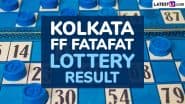








 Quickly
Quickly








